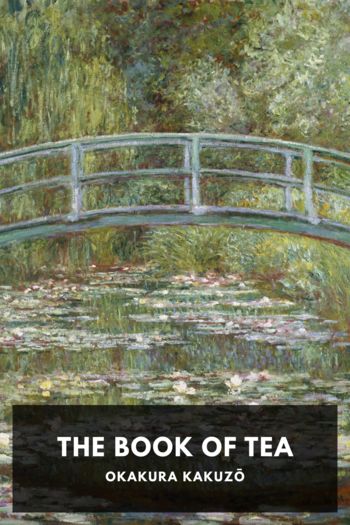The Warden Anthony Trollope (top 100 novels txt) 📖

- Author: Anthony Trollope
Book online «The Warden Anthony Trollope (top 100 novels txt) 📖». Author Anthony Trollope
“No right to be warden of the hospital, papa?”
“No right to be warden with eight hundred a year; no right to be warden with such a house as this; no right to spend in luxury money that was intended for charity. Mr. Bold may do as he pleases about his suit, but I hope he will not abandon it for my sake.”
Poor Eleanor! this was hard upon her. Was it for this she had made her great resolve! For this that she had laid aside her quiet demeanour, and taken upon her the rants of a tragedy heroine! One may work and not for thanks, but yet feel hurt at not receiving them; and so it was with Eleanor: one may be disinterested in one’s good actions, and yet feel discontented that they are not recognised. Charity may be given with the left hand so privily that the right hand does not know it, and yet the left hand may regret to feel that it has no immediate reward. Eleanor had had no wish to burden her father with a weight of obligation, and yet she had looked forward to much delight from the knowledge that she had freed him from his sorrows: now such hopes were entirely over: all that she had done was of no avail; she had humbled herself to Bold in vain; the evil was utterly beyond her power to cure!
She had thought also how gently she would whisper to her father all that her lover had said to her about herself, and how impossible she had found it to reject him: and then she had anticipated her father’s kindly kiss and close embrace as he gave his sanction to her love. Alas! she could say nothing of this now. In speaking of Mr. Bold, her father put him aside as one whose thoughts and sayings and acts could be of no moment. Gentle reader, did you ever feel yourself snubbed? Did you ever, when thinking much of your own importance, find yourself suddenly reduced to a nonentity? Such was Eleanor’s feeling now.
“They shall not put forward this plea on my behalf,” continued the warden. “Whatever may be the truth of the matter, that at any rate is not true; and the man who wrote that article is right in saying that such a plea is revolting to an honest mind. I will go up to London, my dear, and see these lawyers myself, and if no better excuse can be made for me than that, I and the hospital will part.”
“But the archdeacon, papa?”
“I can’t help it, my dear; there are some things which a man cannot bear:—I cannot bear that;” and he put his hand upon the newspaper.
“But will the archdeacon go with you?”
To tell the truth, Mr. Harding had made up his mind to steal a march upon the archdeacon. He was aware that he could take no steps without informing his dread son-in-law, but he had resolved that he would send out a note to Plumstead Episcopi detailing his plans, but that the messenger should not leave Barchester till he himself had started for London; so that he might be a day before the doctor, who, he had no doubt, would follow him. In that day, if he had luck, he might arrange it all; he might explain to Sir Abraham that he, as warden, would have nothing further to do with the defence about to be set up; he might send in his official resignation to his friend the bishop, and so make public the whole transaction, that even the doctor would not be able to undo what he had done. He knew too well the doctor’s strength and his own weakness to suppose he could do this, if they both reached London together; indeed, he would never be able to get to London, if the doctor knew of his intended journey in time to prevent it.
“No, I think not,” said he. “I think I shall start before the archdeacon could be ready;—I shall go early tomorrow morning.”
“That will be best, papa,” said Eleanor, showing that her father’s ruse was appreciated.
“Why yes, my love. The fact is, I wish to do all this before the archdeacon can—can interfere. There is a great deal of truth in all he says;—he argues very well, and I can’t always answer him; but there is an old saying, Nelly: ‘Everyone knows where his own shoe pinches!’ He’ll say that I want moral courage, and strength of character, and power of endurance, and it’s all true; but I’m sure I ought not to remain here, if I have nothing better to put forward than a quibble: so, Nelly, we shall have to leave this pretty place.”
Eleanor’s face brightened up, as she assured her father how cordially she agreed with him.
“True, my love,” said he, now again quite happy and at ease in his manner. “What good to us is this place or all the money, if we are to be ill-spoken of?”
“Oh, papa, I am so glad!”
“My darling child! It did cost me a pang at first, Nelly, to think that you should lose your





Comments (0)